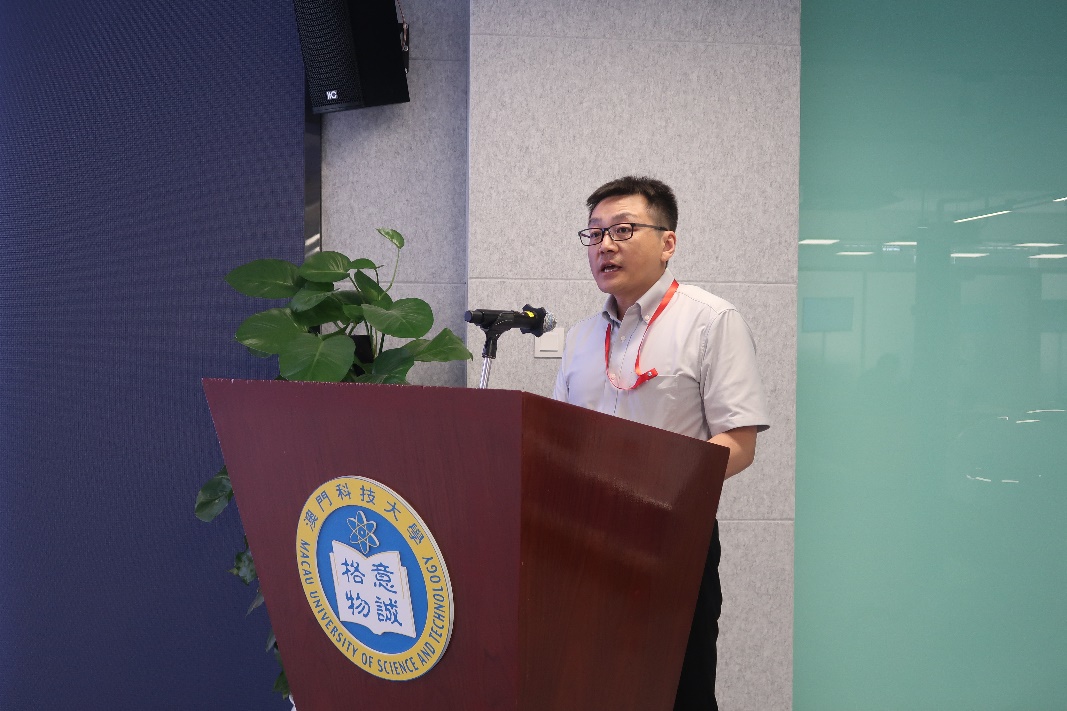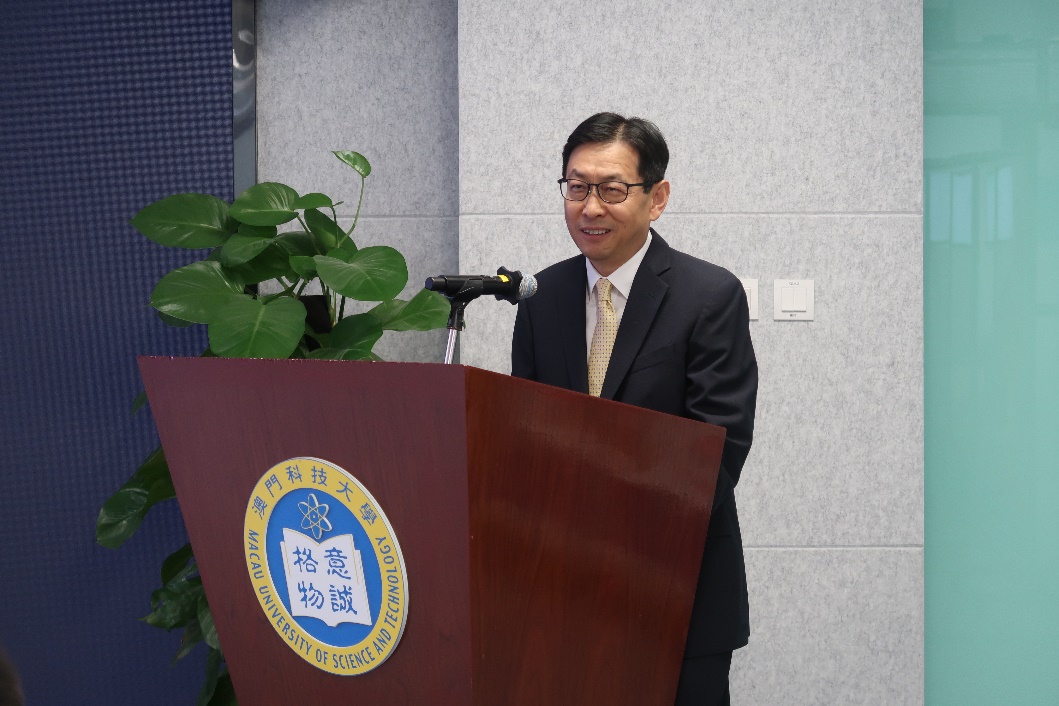To promote academic exchanges and knowledge sharing, and enhance the knowledge and understanding of science and engineering fields among college students and teaching staff, the Faculty of Innovation Engineering of MUST conducts the Interdisciplinary Science and Engineering (ISE) Lecture Series (Fall) by inviting well-known scholars and professionals from different fields to share their insights on the latest research results and application practices in science and engineering. The fourth seminar of the ISE Lecture Series were held on the afternoon of October 7, 2024 at the MUST LIU’s Innovation and Technology Center.
The lecture was hosted by Professor Tang Jianxin (Assistant Dean of Faculty of Innovation Engineering), and attended by Chair Professor Paul Kwong Hang TAM (Vice President of MUST), Chair Professor Zhang Du (Director of School of Computer Science and Engineering), Chair Professor Zhang Hongming (Dean of University International College), Chair Professor Li Zhiwu (Assistant Dean of Faculty of Innovation Engineering), Chair Professor Wu Naiqi (Head of Department of Engineering Science), Chair Professor Zhang Kang (Vice Dean of the Faculty of Medicine), Professor Patil Nivritti Gajanan (Vice Dean of the Faculty of Medicine), Associate Professor Daniel Baptista Hon (Assistant Dean of Faculty of Medicine), Assistant Professor Ou Qingdong from Faculty of Innovation Engineering, Assistant Professors Chen Yan and Wong Io Nam from Faculty of Medicine. Faculty of Innovation Engineering sincerely welcomed the graduate students and postdoctoral researchers from the FIE, as well as people interested in science and engineering to participate in this ISE Lecture Series and discuss the importance of interdisciplinarity studies and future development directions.

Professor Tang Jianxin was hosting the lecture
The fourth lecture of the series, "Ultra-low-field MRI for Accessible Healthcare: A computing-powered future?" was given by Chair Professor Ed X. Wu, Chair of Biomedical Engineering at the University of Hong Kong. In the speech, he indicated that despite a half-century of advancements, global MRI accessibility remains limited and uneven, hindering its full potential in health care. Initially, MRI development focused on low fields around 0.05 Tesla, but progress halted after the introduction of the 1.5 Tesla whole-body superconducting scanner in 1983. Professor Wu said that by using permanent 0.05 Tesla magnets and deep learning for electromagnetic interference elimination, they developed low-cost and RF shielding-free MRI scanners that operate using a standard wall power outlet and without radiofrequency and magnetic shielding. In addition, Professor Wu demonstrated its wide-ranging applicability for imaging both brain and various anatomical structures at whole-body level. Furthermore, he developed three-dimensional deep learning reconstruction methodologies to boost image quality by harnessing extensive high-field MRI data. Professor Wu hoped that these advances will eventually lead to an entirely new class of affordable and computing–powered ultra-low-field MRI scanners for point-of-care applications, addressing unmet clinical needs in diverse health care settings.

Chair Professor Ed X. Wu was giving the speech
The lectures series is an important initiative of the Faculty of Innovation Engineering to cultivate outstanding talents with innovative thinking and interdisciplinary abilities. Lecture topics will cover a variety of fields, such as artificial intelligence, environmental engineering, materials science, and biomedical engineering, etc. Participants have the opportunity to learn from experts in academia who introduced cutting-edge technologies and research progress, and provided an in-depth discussion of challenges and opportunities in related fields for college teachers and students to stimulate innovative thinking in science and technology. The Faculty of Innovation Engineering will continue to hold more academic lectures to provide more practical information and platforms for our teachers and students to promote interdisciplinary integration and sharing of academic achievements, and to cultivate more outstanding leaders in science and engineering disciplines.





